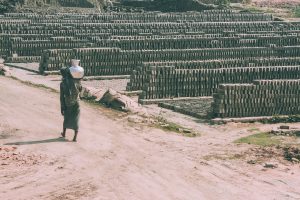If the COVID-19 pandemic has taught us anything, it’s that the oft-noted obstacles to putting robust social protection systems in place – a lack of finances, administrative constraints, etc. – can be overcome with enough political will.
Many countries, including in Asia, took extraordinary measures to finance and strengthen their welfare systems in response to the pandemic. While most of these programs were disappointedly short-lived (with an average duration of just 4.5 months), the pandemic proved that when social protection is deemed a priority, seemingly intractable barriers can and will be broken down.
The same is true for the Global Fund for Social Protection: the idea of a dedicated transformative fund that would see the global community cooperatively supporting the financing of minimum levels of social protection in those countries that lack the resources to do so themselves.
While the idea of the Fund been largely welcomed, a sizeable cohort has predictably deemed it unrealistic and unimplementable given its perceived “costs.”
Now, new research published by the UN University – MERIT has laid out, for the first time, how financing universal social protection for all would actually be possible at a relatively low cost, with hugely positive impacts on reducing poverty and inequality.
In Nepal, visited by the U.N. Special Rapporteur in December 2021, 50.8 percent of the country lives in poverty, yet just 17 percent of the population is covered by at least one social benefit. The new research shows that were the country to provide 10 years of universal child, maternity, disability, unemployment, and old age benefits, as well as access to essential healthcare, poverty in Nepal would be cut by a staggering 64 percent.
To jumpstart these benefit schemes, the Global Fund would need to provide Nepal with $5.5 billion over the 10-year period. These resources could be matched by Nepal, by raising taxes to the regional average, after just five years. And by the end of the 10 years, with the social protection programs well established, the Fund could scale back, with Nepal covering the entirety of the costs going forward.
We have a – not unreasonable – quote for almost eradicating poverty in Nepal. The question is whether the world’s governments are prepared to pay.
For context, the total wealth produced in OECD countries was around $60 trillion in 2018 and the total Official Development Assistance effort of OECD countries amounted to $178.9 billion in 2021. Less than 3 percent of that sum could launch a scheme that would, in time, extend social protection to the entire population of Nepal.
COVID-19 debunked the myth that social protection is something that should only be targeted at the poorest of the poor to protect them from absolute destitution. We all need social protection to keep us afloat in times of crisis. It’s what keeps us going when life throws the unexpected at us, meaning the economies of countries that invest in social protection are much more resilient to shocks than those that don’t.
With the majority of the world’s population lacking any form of protection – including in Asia and the Pacific where only 44 percent of people have access to at least one social benefit – and the cost of putting it in place prohibitive for many low-income countries, a Global Fund for Social Protection is surely the only viable way forward.
If the global community and governments are serious about eradicating poverty and ensuring a more resilient future for all they must stop hiding behind supposed constraints and put the Global Fund for Social Protection into action.

































